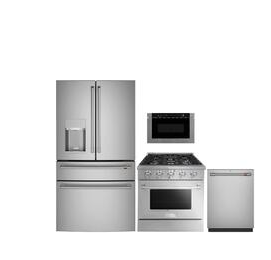Is your fridge in trouble? Check out these easy solutions

Keeping food at low temperatures keeps it fit for consumption longer and preserves nutrients. A problem with the refrigerator will show up on the electric bill, but what is more serious, it can put your health at risk. Take no chances: refrigerators can be in good working order with a little effort. Check out below how to solve various problems that refrigerators may be experiencing.
1) Why is my fridge freezing? Control humidity to keep it frost free

The accumulation of ice reduces the space of the refrigerator and makes it inefficient. This can be bypassed by regularly cleaning the rear grilles and inspecting the door seals.
Do not put hot food in the refrigerator. It will heat whatever is there, and the released water vapor will condense, forming ice. Also, adjust the fridge's humidity control (if it has one). A lower setting will decrease ice buildup.
Is the fridge light not turned on? Check the lamp and switch

A burned-out light bulb is the most likely cause of a dark refrigerator. Remove the clear cover and change the bulb. If it doesn't, focus on the door switch. Clean it with compressed air jets or a specific cleaner for electrical contacts. Test the light again.
It is also possible that the door may have given way on the hinges without making contact with the light switch. Realign the refrigerator door and body.
Freezer is not freezing properly? Clean the air ducts

Most refrigerators have only one cooling mechanism for the cooling and freezing compartments. So if the cooling is working but the freezing isn't, there's likely a blockage in the air duct between the two (possibly a bag of cheesecakes or a box of nuggets ).
Look inside the freezer and you will see a hole of 3 to 5 centimeters, often protected by a plastic grid: it is the entrance of cold air. Keep the opening and surrounding area clear for air to flow. Some more sophisticated refrigerators have separate refrigeration systems for cooling and freezing; persistent problems will need a professional repair on such models.
Is the fridge making noise? Balance the fridge and let the compressor steady

Years of operation can take a toll on the refrigerator: parts can loosen and make a persistent, annoying noise.
Make sure the fridge is level. Adjust the height of the refrigerator feet by turning them clockwise (to raise) or counterclockwise (to lower). Check with a plumb that it is level.
If the noise persists, unplug the refrigerator and move it away from the wall. Identify the compressor, a large, gourd-shaped mechanism at the base of the back. Sometimes he finds himself behind a removable panel. The compressor is fixed by thick screws or simple fittings to the refrigerator body. Tighten the locks so that the compressor does not vibrate when running. Take the opportunity to vacuum the area around the compressor and the cooling fan under the refrigerator; this will help the refrigerator to work more efficiently.










